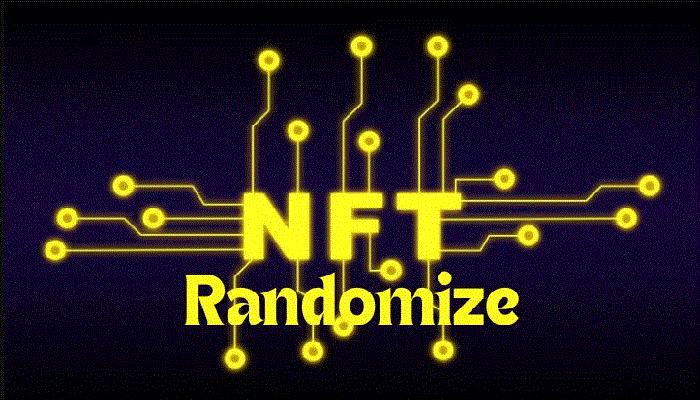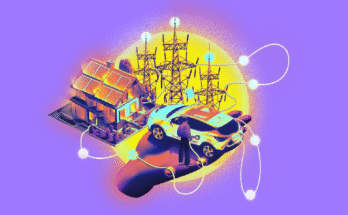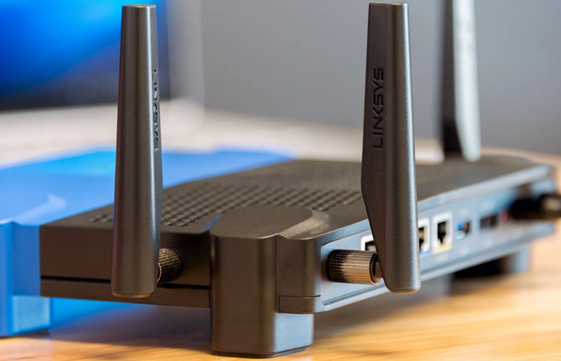NFTRandomize has exploded in recent years, transforming digital art, collectibles, and even real-world assets into verifiable, tradeable digital tokens. Amidst this growing landscape, platforms like NFTRandomize are emerging, offering new and innovative ways to engage with NFTs. Whether you’re a seasoned NFT collector or a newcomer, understanding the value and potential of randomization in NFT creation could change the way you look at the future of digital assets.
What is NFTRandomize?
NFTRandomize is a platform (or tool) that leverages the concept of randomization in the creation and distribution of NFTs. Unlike traditional NFT marketplaces, where buyers have control over the specific asset they purchase, NFTRandomize adds an element of surprise and excitement by generating NFTs with randomized traits or distributing them in a randomized manner.
This approach taps into the popular “loot box” trend, where users don’t know exactly what they will get until after the purchase, making the process both fun and risky for collectors.
How Does NFTRandomize Work?
At its core, NFTRandomize uses algorithms to randomize certain aspects of NFTs. These aspects can include:
- Visual Traits: Randomizing characteristics like color schemes, accessories, or other visual elements of an NFT artwork.
- Metadata: Randomizing certain aspects of the NFT’s metadata, including ownership history, rarity levels, or unlockable content.
- Distribution: Randomizing how NFTs are distributed to buyers, adding unpredictability to the process of acquisition.
For example, when users purchase an NFT through NFTRandomize, they don’t know the exact traits or rarity of their NFT until after the transaction is complete, similar to how trading cards are sold in packs.
The Benefits of NFT Randomization
Randomizing NFTs can offer several key advantages:
- Enhanced Collectibility: Randomization adds layers of excitement to NFT collecting. Much like opening a pack of rare trading cards, buyers have a chance to score a rare, valuable item – or perhaps something more common.
- Surprise Factor: The element of surprise makes the purchasing process more thrilling. Whether you’re an investor or a casual buyer, the randomness can create a sense of anticipation that leads to higher engagement.
- Fairness: For creators and platforms, randomization can ensure fairness in NFT distribution, as every buyer has an equal opportunity to receive a rare NFT.
- Gamification: The randomization process can gamify the NFT space, making the collection process more interactive and fun. Some platforms even incorporate “challenges” or incentives for collectors to continue purchasing in hopes of completing sets or discovering rare items.
Applications of NFTRandomize in Different Sectors
1. Digital Art and Collectibles
In the art world, NFTRandomize can provide artists a new medium for creation. Instead of selling a static piece of artwork, artists can release collections of randomized NFTs where buyers receive one-of-a-kind versions of the same base design. This approach can increase the perceived rarity and value of the artwork, as no two NFTs are exactly alike.
2. Gaming
The gaming industry is another sector where randomization is already commonplace. In-game items, loot boxes, and digital collectibles are frequently randomized to create excitement and keep players engaged. NFTRandomize can work seamlessly with blockchain games to tokenize randomized in-game assets, adding both a financial and emotional layer to game economies.
3. Real Estate and Virtual Property
With the rise of metaverses and virtual real estate, NFTRandomize can be used to sell randomized parcels of land or property. Instead of choosing specific locations, buyers can participate in “land drops” where the property’s location or characteristics are revealed after purchase, making land ownership in virtual spaces a fun and unpredictable process.
The Role of Smart Contracts in NFTRandomize
Smart contracts play a crucial role in platforms like NFTRandomize. These self-executing contracts ensure that the process of NFT generation, randomization, and distribution is fair and transparent. Since NFTs exist on decentralized blockchains, the use of smart contracts guarantees that randomization cannot be manipulated, ensuring trust between buyers and sellers.
For example, a smart contract might specify that a certain number of rare NFTs are available in a collection, but it doesn’t determine who gets them until after the purchase, leaving the decision to a fair and verifiable random process.
Challenges of NFT Randomization
While randomization adds excitement and opportunity, it also comes with challenges:
- Buyer Risk: Since buyers don’t know what they’re getting ahead of time, there’s an inherent risk in purchasing. Some collectors may be disappointed if they receive common or less valuable NFTs.
- Market Saturation: If too many platforms adopt randomization, the novelty could wear off, leading to a saturated market where random NFTs become less desirable.
- Environmental Impact: As with all NFTs, there are concerns about the environmental impact of the blockchain technology they rely on, particularly on energy-intensive networks like Ethereum.
- Regulatory Concerns: Depending on how randomization is structured, it could raise regulatory concerns in some regions. For example, random distribution might be viewed similarly to gambling, which is tightly regulated in certain areas.
The Future of NFTRandomize
As the NFT market continues to evolve, platforms like NFTRandomize are likely to become more popular. Randomization offers an exciting alternative to traditional NFT sales, appealing to both serious collectors and casual buyers. However, the success of such platforms will depend on how they balance excitement with fairness, risk, and sustainability.
Some potential future developments include:
- Cross-Platform Collaboration: Partnering with major NFT marketplaces or blockchain games to integrate randomized NFTs across different platforms.
- Dynamic NFTs: As technology evolves, randomization could extend beyond visual traits to create NFTs that evolve or change over time, adding a new layer of interactivity.
- Increased Customization: Platforms may offer a blend of randomization and user customization, where buyers can set certain parameters while allowing others to be randomized.
FAQ about NFTRandomize
Q1: What is NFTRandomize?
NFTRandomize is a platform that offers randomization in the creation or distribution of NFTs, making each purchase a surprise. Buyers don’t know exactly what traits or rarity their NFT will have until after the transaction.
Q2: How does NFT randomization work?
The platform uses algorithms and smart contracts to randomize certain aspects of NFTs—such as visual elements, metadata, or distribution—ensuring that buyers have an equal chance to receive rare or unique NFTs.
Q3: What are the benefits of NFT randomization?
Randomization adds excitement and a sense of gamification to the NFT buying process. It can enhance the collectibility of NFTs, introduce fairness in distribution, and provide a thrilling experience for collectors.
Q4: What risks are involved with NFT randomization?
The biggest risk is that buyers may receive less desirable or common NFTs. Some might find the lack of control frustrating, while others enjoy the thrill of the unknown.
Q5: Is NFTRandomize suitable for beginners in NFTs?
Yes, but buyers should be aware of the risks involved in random NFT purchases. It’s essential to understand how randomization works and to be prepared for a range of outcomes.
Conclusion
NFTRandomize introduces an innovative twist to the NFT space by harnessing the power of randomization. It offers collectors and buyers an exciting way to engage with digital assets, creating a fun, unpredictable marketplace. However, like any investment, it’s important to understand the risks and rewards before diving in.



